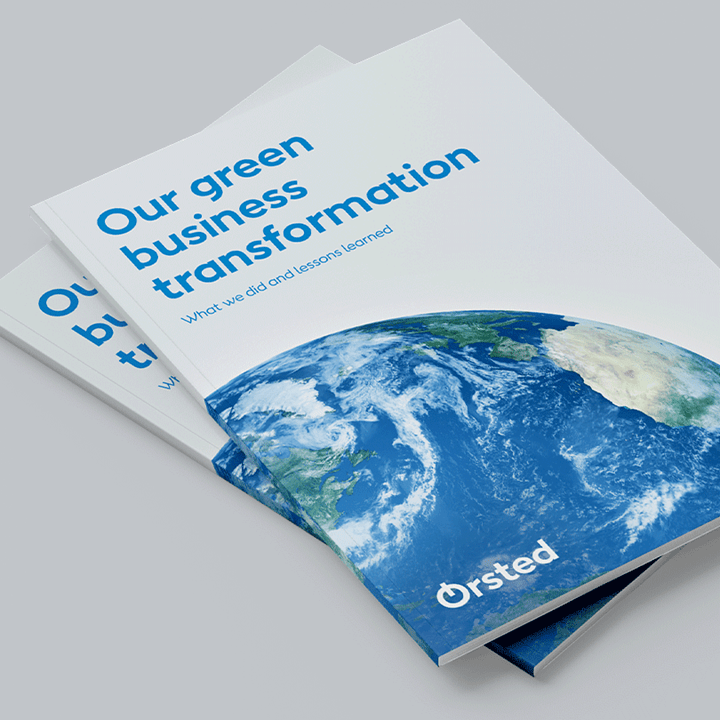Our business transformation is a story of technological innovation, steep learning curves and difficult strategic choices that have led to long-term gains. We want to share what we’ve learnt, from our decision to move away from an unsustainable business model based on fossil fuels, to the action we took to build a truly green business – and the benefits and opportunities it's created for us.
Our green energy transformation
Could our green transformation inspire yours?
Ørsted was once one of the most coal-intensive energy companies in Europe. Today, we’re one of the world’s most sustainable energy companies, and a global leader in the transition to green energy.



















